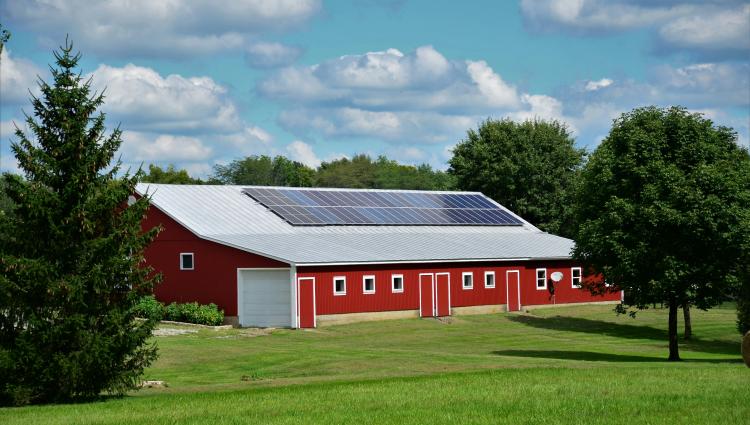Agriculture loans for Solar Power Uses

Why Solar Power is Essential for Agriculture Today
With rising energy costs and fluctuating utility rates, many farmers are turning to novel solutions to power their operations or homes that don’t dig into their bottom line. Solar power has emerged as a game-changer for agriculture, offering affordable, clean energy that reduces operating expenses and increases energy independence.
From running irrigation systems to powering grain drying and greenhouse operations, solar energy is transforming modern farming. To support these projects, solar power loans provide the financing farmers need to invest in renewable energy.
Financing Solar Power for Agricultural Operations
Farmers have access to various loans and financing options that make it easier to fund the purchase and installation of solar systems.
Types of Solar Power Loans
- Secured Loans: These loans use farm assets as collateral, offering borrowers access to larger loan amounts and lower interest rates.
- Equipment-Specific Loans: Tailored for renewable energy systems, these loans allow farmers to access funds specifically for equipment and solar panel installation.
Grants and Incentives
In addition to loans, farmers can lower project costs by tapping into state, federal, and local incentives. A word of caution: Be sure to read the details of these programs in their entirety before making your decision – these programs and how they run are often dependent on the administration currently in power and may change in the future. Due to the fluctuation in programing, your solar equipment provider can also be a good resource for program availability and eligibility.
- USDA Rural Development Energy Programs: The USDA offers a variety of programs incentivizing businesses to make energy efficiency improvements.
- State Incentives for Renewables: Each state offers unique programs to promote the adoption of renewable energy. These may include rebates, tax incentives, and loan support for solar power projects.
- Federal Tax Benefits: Depending on eligibility, farmers can claim the Modified Accelerated Cost Recovery System (MACRS), which allows for accelerated depreciation of renewable energy equipment, lowering overall tax liability.
By combining grants, incentives and loans, farmers can reduce out-of-pocket costs, making solar power more affordable and accessible.
Evaluating Solar Power Loan Providers
Choosing the right lender is crucial for securing the best rates and terms. Here’s what business owners should consider:
- Interest Rates: Competitive interest rates are essential for keeping monthly payments manageable. Fixed rate loans can ensure predictable payments.
- Loan Terms: Depending on the lender you go with, loan terms can range from short-term to long-term agreements. There are also loan-specific features like deferred or interest-only payments during system installation.
- Specialized Agricultural Lenders: Lenders like Horizon Farm Credit offer tailored loans for agricultural needs, which cater to agricultural clients in Delaware, Maryland, Pennsylvania, Virginia, and West Virginia. We know each farm is unique and we are ready to help you determine the feasibility of your investment in solar.
Steps to Secure a Solar Power Loan
If you’re ready to invest in a solar power system, follow these steps to explore and secure financing for your farm.
Assess Your Energy Needs
Start with an energy audit to determine how much power your farm needs and how a solar panel system can meet those requirements. This step ensures you install the right-sized system to maximize energy savings.
Select a Solar Installer
Work with experienced solar providers who specialize in farm installations. Look for contractors who understand farm-specific and USDA program requirements.
Prepare Your Loan Application
You’ll need to provide documentation including your financial history, energy use data, proof of grant eligibility, and construction plan.
Long-term Benefits of Solar Power in Agriculture
Investing in solar power offers significant long-term benefits for farmers and agribusinesses.
- Financial Savings: Solar energy reduces farm electricity bills and stabilizes energy costs, providing consistent savings over time.
- Tax Benefits and State Incentives: By using the MACRS depreciation system, farmers can recover a portion of the system's cost as a tax deduction. Additional state incentives for renewables can further reduce costs.
- Energy Independence: Relying on on-site renewable energy reduces exposure to utility price fluctuations and increases farm sustainability.
Ready to explore financing options for a solar investment for your farm? Contact a member of our team today to get started.